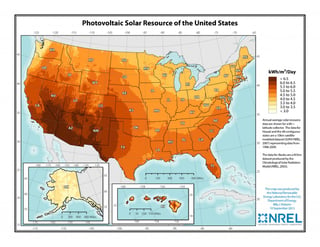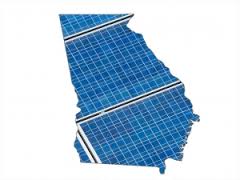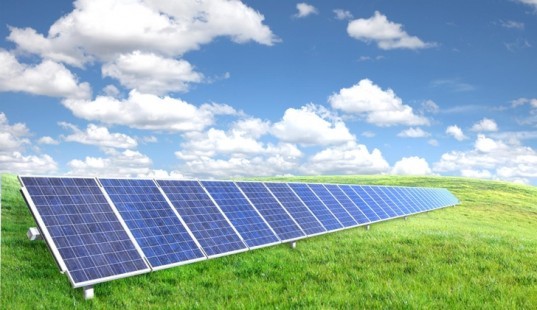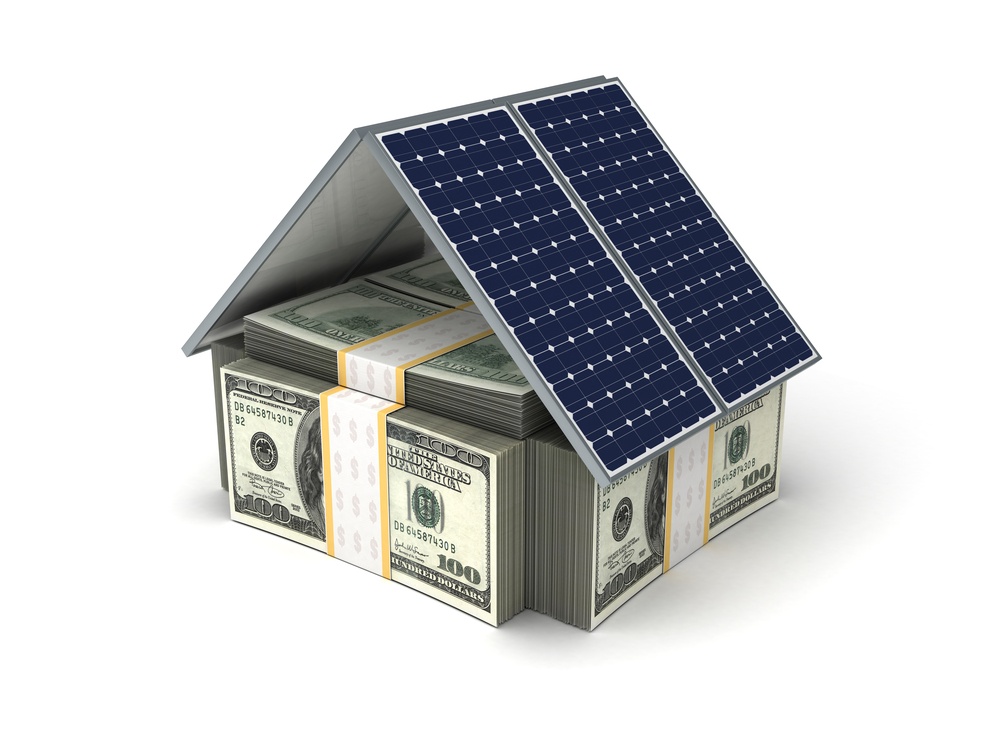- Solar is Georgia's leading domestic source of energy production.
- Solar is a great investment today, not years from now.
- Solar is clean and renewable with very little operating and maintenance required.
- Solar is good for Georgia's economy.
- Solar provides net benefits to the utility company and can help reduce the overall cost of energy.
1. Solar is Georgia's Leading Domestic Source of
Energy Production
While beautiful and rich with many natural wonders, Georgia is not blessed with conventional natural resources used to generate electricity. Electricity generation capacity in Georgia is made up of mostly fossil fuels (70-75%). Yet Georgia has no homegrown petrolium, coal, or natural gas. This means when it comes to energy, Georgia is actually in the export business. While we import all our petroleum, coal and natural gas, we export about $30 billion per year to pay for it. Yes, that’s 3-0 with a “B”. Every year, that’s money that leaves our state and goes to make others extremely wealthy. The entire state budget for 2016 is $21 billion so we spend 30% more importing fossil fuels than it costs to run the entire state every year.
If Georgia was its own country or island, wouldn’t we use more of what we have to take care of our own needs? We are almost completely dependent upon resources outside our state to support our current energy demand. If the trucks hauling gas, trains loaded with coal and the pipelines piping natural gas were cut off today, the entire state would come to a screeching halt. Think Snowmageddin but in the middle of the summer without air conditioning.
Even more than for domestic security and sustainability purposes, investing in our own energy infrastructure is an investment in ourselves and our future. Imagine for a moment if that $30 billion was invested locally. Imagine rather than hemorrhaging that money out of the state every year, it was invested in solar energy, energy storage, smart grid, and electric vehicle technologies. With $30 billion annually, how quickly could Georgia transform from being almost completely dependent on foreign fuel sources that pollute our air to a domestically secure, sustainable, and renewable energy future. Imagine the number of jobs created, the tremendous economic development, and healthier environment for future generations.
How we got here is not the question. Until recently, fossil fuels were the only reliable source of cheap energy. There is no question that Georgia greatly benefits from relatively inexpensive power with a reliable grid infrastructure. The PSC and Georgia utility companies have done a tremendous job supplying the state with safe, reliable energy, of which we are all beneficiaries, and it should not be taken for granted. But that doesn’t mean we have to maintain the status quo and not try to improve our energy infrastructure.
Today (yes today – not 5 years from now), we have a choice. We have a choice of cleaner, cheaper, and most importantly, domestic source of energy. Every hour the sun beams onto Earth is more than enough energy to satisfy global energy needs for an entire year.
The cost of solar has plummeted over 50% in the last 5 years. Last year, solar developers offered to sell utility-scale solar power to Georgia Power at $65 per MWh while coal-fired Plant Hammond costs $94 per MWh. At $65 per MWh, solar is also less expensive than peaker plants and spinning reserves utilities use to keep on stand-by during hours of high demand. Solar generates more power during peak demand times (hot summer days) so it helps reduce stress on grid infrastructure and reduces the overall cost of energy. So how much potential solar energy do we have in Georgia?
A state-by-state analysis by the National Renewable Energy Laboratory of the U.S. Department of Energy has found that Georgia has very significant solar PV potential, with the technical potential for 24,000 MW of utility-scale solar PV and 25,000 MW of rooftop solar PV capacity and a total technical potential for over 74 million MWh of energy generation from these renewable sources.
Source: U.S. Renewable Energy Technical Potentials: A GIS-Based Analysis, NREL, July 2012, at page 12.
 Added together, 49,000 MW of solar potential would be about 60% of total electricity generation yet solar currently comprises less than 1,000 MW. So why don’t we do more to support policies and programs that promote State security and be less dependent on sources of energy we don’t have? Georgia should be doing everything it can to encourage an entire ecosystem of solar, energy storage, and smart grid research, development, and manufacturing to set up shop so we are not only tapping into our best source of domestic energy but we are building the technology that makes it possible. Similar to what we see in other industries, innovations in energy technology tend to outpace lawmakers and policymakers. It’s not easy to change a century long practice of monopoly companies building centralized facilities dependent on fossil fuels. The transition to the clean energy economy will require the political will to challenge the economic status quo and power structures that artificially keep current systemic energy policies in place.
Added together, 49,000 MW of solar potential would be about 60% of total electricity generation yet solar currently comprises less than 1,000 MW. So why don’t we do more to support policies and programs that promote State security and be less dependent on sources of energy we don’t have? Georgia should be doing everything it can to encourage an entire ecosystem of solar, energy storage, and smart grid research, development, and manufacturing to set up shop so we are not only tapping into our best source of domestic energy but we are building the technology that makes it possible. Similar to what we see in other industries, innovations in energy technology tend to outpace lawmakers and policymakers. It’s not easy to change a century long practice of monopoly companies building centralized facilities dependent on fossil fuels. The transition to the clean energy economy will require the political will to challenge the economic status quo and power structures that artificially keep current systemic energy policies in place.
That’s why we can’t wait for our lawmakers to make the transition to clean energy for us. We don’t have to wait for them either. With solar we can generate our own clean electricity on our own property. We can power our electric vehicles with the sunlight that falls on our rooftops every day. We now have the power (pun intended) to take matters into our own hands and it’s possible with solar. For those waiting for the cost of solar to come down further, take note that as the cost of solar decreases so will the incentives that make solar more afforable. Timing matters when investing in solar and it's never been more affordable than it is today. Our environment can't wait any longer either.
Solar is not Georgia’s only domestic source of clean energy but it is rapidly becoming the least expensive and most reliable. Storing solar energy is also becoming economically viable turning solar into an even more reliable source of 24/7 energy. Now that we have a choice, investing more in our clean energy future is an investment in ourselves. It’s an opportunity to make Georgia more sustainable and less reliant on others. It’s an opportunity to generate renewable energy jobs and boost economic development. How we got here is not the question we should be asking ourselves but where we go from here is the right question and solar is the right choice for Georgia’s energy future.




